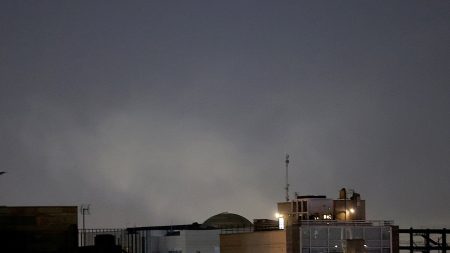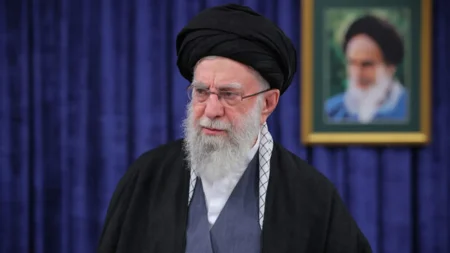China’s Growing Influence in Venezuela Raises Concerns as US Military Presence Increases
In a high-stakes geopolitical chess match unfolding just hours from American shores, China is deepening its economic embrace of Venezuela even as the Trump administration signals a hardline approach to what it calls “narco-states” in the Western Hemisphere. This collision of superpowers over a resource-rich but economically devastated nation has intensified following the recent deployment of the USS Gerald R. Ford carrier strike group to the Caribbean. The massive American naval presence, carrying over 4,000 sailors and dozens of tactical aircraft, represents a clear message from Washington aimed at “bolstering US capacity to detect, monitor, and disrupt illicit actors and activities,” according to Pentagon statements. This show of force has reportedly triggered defensive preparations within Venezuela, with military officers training for guerrilla-style resistance against potential American intervention.
Against this backdrop of rising tensions, Beijing has made a bold economic move by announcing a comprehensive “zero-tariff” trade agreement with Caracas at the Shanghai Expo 2025. This pact, covering approximately 400 tariff categories, would eliminate duties on goods flowing between the two nations—a lifeline for Venezuela’s sanctioned economy that Washington has worked diligently to isolate. “This really looks like China is going to completely take over the Venezuelan economy,” warns Gordon Chang, an expert on China’s global trade strategy. “Venezuela basically sells petroleum to China and very little else. China, of course, is a manufacturer of many, many items. Venezuelan manufacturing is not going to experience a renaissance anytime soon—it’s going the opposite direction.” Rather than strengthening Venezuela’s position, Chang suggests the agreement merely “deepens China’s stranglehold” over a desperate Maduro regime seeking protection from American pressure.
China’s interest in Venezuela extends far beyond simple commerce, representing two decades of strategic investment that has granted Beijing extraordinary influence over a nation strategically positioned in America’s traditional sphere of influence. The Council on Foreign Relations estimates China has extended approximately $60 billion in loans to Venezuela over the past twenty years, with much of this debt repaid through oil shipments—a figure still cited by officials from both countries in 2025. More concerning to Western security analysts is China’s growing technological and intelligence footprint in the country, exemplified by the El Sombrero satellite ground station in Venezuela’s Guárico province. This facility, part of what former Venezuelan diplomat Isaias Medina III describes as “satellite positioning and surveillance facilities,” gives Beijing valuable intelligence capabilities within the Western Hemisphere. The deepening relationship between these nations reflects China’s broader strategy of establishing footholds in regions traditionally dominated by American influence.
What makes Venezuela particularly concerning as a Chinese partner is its transformation into what Medina calls “a forward operating base for regimes openly hostile to the United States and its allies.” This evolution from a sovereign nation into a multi-purpose platform for anti-Western powers has accelerated under Nicolás Maduro’s leadership. “Iran, Russia, China, and Cuba have entrenched themselves across Venezuelan territory, using the country as a platform for asymmetric warfare, intelligence operations, and ideological expansion throughout Latin America,” Medina explains. Russia maintains a significant military presence through billions in arms sales and defense cooperation, while Cuban advisers remain embedded in Venezuelan security institutions. Perhaps most alarming are reports of Iranian-backed terrorist organizations like Hezbollah and Hamas establishing financial and logistical networks within the country. This concentration of adversarial forces so close to American shores represents a strategic challenge that extends well beyond economic competition.
The humanitarian toll of Venezuela’s political and economic collapse cannot be overstated. More than 30% of the country’s population has been forcibly displaced in what constitutes one of the largest migration crises in recent history. Those remaining face severe food insecurity, with hunger weaponized as “a tool of social control” according to Medina, potentially constituting war crimes under international law. The Maduro government has effectively replaced traditional governance with what critics describe as a criminal enterprise, where corruption isn’t an aberration but the fundamental operating system. Despite these humanitarian catastrophes and alleged criminal activities, many United Nations member states continue to recognize and engage with the regime. This international legitimacy enables the Maduro government to maintain power while facilitating cooperation with anti-Western actors just hours from U.S. territory.
Despite China’s growing economic presence and rhetorical support for Venezuela, experts question Beijing’s ability to truly shield Caracas from American power if the confrontation escalates beyond economic measures. “China can certainly launch a propaganda blitz,” Chang notes, “but it can’t project military force in the region. It’s really up to what President Trump does. China does not have the military strength to oppose American intervention if that’s what Trump decides.” This fundamental power imbalance underscores the precarious position of the Maduro regime—caught between deepening dependence on distant Chinese support and the immediate reality of American naval power patrolling nearby waters. As the standoff continues, the ultimate resolution may depend on whether Washington views Venezuela primarily as an economic challenge, a narcotics problem, or a more fundamental security threat given its role as what Medina describes as “the operational convergence of organized crime, drug trafficking, money laundering, and human rights atrocities” just three hours from American shores. The growing convergence of these concerns suggests the status quo is increasingly untenable, potentially setting the stage for a more definitive confrontation between competing visions for Venezuela’s future.















